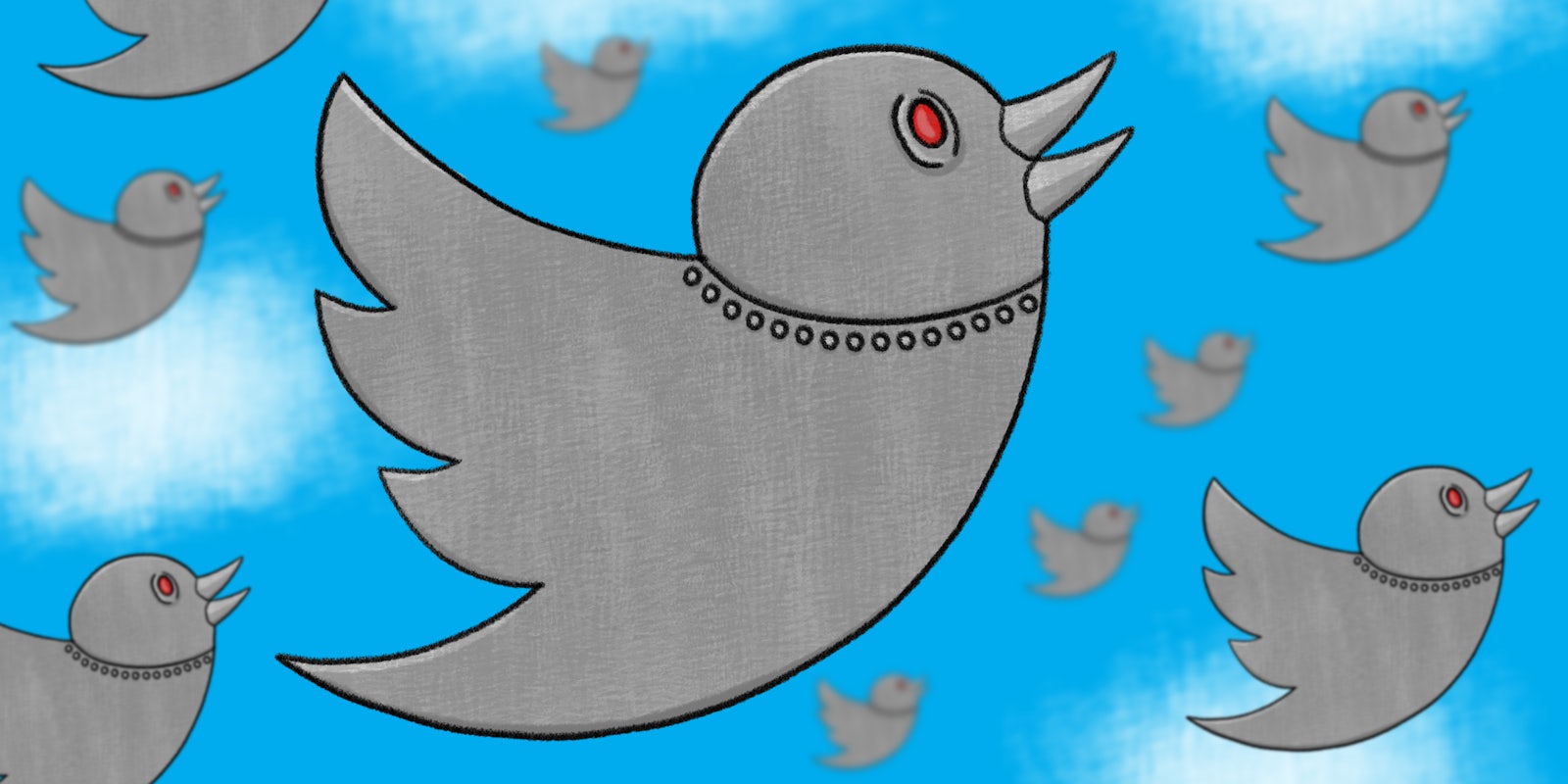Twitter’s been on a bot-banning purge, but bots continue to plague the platformlike some sort of mythical beast. For researchers, it’s an interesting, multi-faceted problem. Pew Research Center recently set out to investigate how often bots are involved with one common Twitter activity—sharing links to popular websites.
Pew randomly sampled 1.2 million English-language tweets from July 27 to Sept. 11, 2017. It identified the links shared in these tweets, categorized them into one of six categories, and identified political bias for relevant tweets. It then examined each tweet to see if it came from a suspected bot account.
Researchers discovered that a majority of accounts sharing links in tweets are automated: a whopping two-thirds of such tweets, in fact. Pew also broke down the stats by website category. Of tweets linking to 2,315 of the most popular websites, researchers found that 90 percent of adult content-related tweets were posted by bots, 76 percent of sports-related links were tweeted by bots, and 66 percent of tweets about news and current events were shared by bots.
For this research, Pew defined a bot as any account “that can post content or interact with other users in an automated way and without direct human input.”
Pew Research also found a small number of Twitter accounts were the source of a large number of link-bearing tweets.
“The 500 most-active suspected bot accounts alone were responsible for 22% of all the links to these news and current events sites over the period in which this study was conducted. By contrast, the 500 most-active human accounts were responsible for just 6% of all links to such sites,” the researchers said.
Pew researchers found that bots, overall, don’t have a liberal or conservative-leaning bias. That is, they were equally likely to share content on the right- or left-side of the spectrum. Bots share just over 40 percent of links to both conservative and liberal political sites.
Twitter has been banning or suspending bot accounts linked to Russian campaign interference as well as clearly fake accounts. However, there are many different type of bots that don’t necessarily post harmful or disparaging content on the platform, such as accounts that tweet breaking news headlines or when new content added to sites like Netflix.
The fact that most link-sharing on Twitter is happening by bot isn’t necessarily a bad thing, since not all the content being shared is malicious. However, it’s not a good thing either. Twitter wants real, human users operating on its platform. While some bots serve a useful purpose, others are just littering the network with spam and noise.
For more information about bots and how Pew Research conducted this study, you can head to its website here.
H/T TechCrunch


